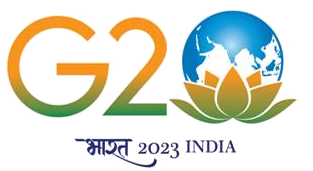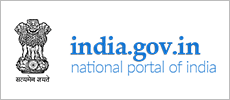The M.Tech. course in 'Remote Sensing & GIS' is offered in collaboration with the Andhra University, Visakhapatnam. The course is approved by the All India Council for Technical Education (AICTE).
The aim of the M.Tech. (RS&GIS) course is to provide in-depth understanding of remote sensing, satellite image analysis, Geographic Information System (GIS) and Global Navigation Satellite System (GNSS) technologies and their applications in natural resources survey and monitoring including agriculture and soils, forestry and ecology, geology and mineral resources, water resources, marine resources, urban and regional planning, atmospheric studies and disaster management.
It is a four semester course in which first two semesters are devoted to exhaustive course work and other two semesters has research project with a mandate to work as a member of a research group in a project in close association with the subject matter experts.
The course work consists of 4 core papers in technology area, 4 core papers in subject specialization, 1 core paper in research skills development and four choice based elective papers. Out of the 4 elective papers, 3 papers are in advanced geospatial technology such as geospatial workflows and technologies, Cartography and 3D GIS, Statistics & Programming for geodata, Natural Resources Management, Environmental Monitoring, and Climate Change Studies. In the fourth elective paper, a candidate needs to carry out a theme-specific multi-disciplinary case study/seminar out of the 60 topics offered from 9 specializations. As per choice and eligibility, a candidate can opt for one of the following 9 specializations :-
- Agriculture & Soils
- Forest Resources & Ecosystem Analysis
- Geoinformatics
- Geosciences
- Marine & Atmospheric Sciences
- Natural Hazards & Disaster Risk Management
- Satellite Image Analysis & Photogrammetry
- Urban & Regional Studies
- Water Resources
-
M.Tech
-
Semister 1
-
Module 1Compulsary Core Papers:
- 1.Remote Sensing & Image Interpretation
- 2.Digital Image Processing
- 3.Geographic Information System
- 4.Photogrammetry, Cartography & GNSS
-
Elective Papers:
- 1.5a Statistics and Programming for Geodata
- 1.5b Statistics & RS Application in NRM/div>Semister 2
-
Module 2Eight Specializations:
- 1.Agriculture and Soils
- 2.Forest Resources & Ecosystem Analysis
- 3.Geosciences
- 4.Urban and Regional Studies
- 5.Marine & Atmospheric Sciences
- 6.Water Resources
- 7.Satellite Image Analysis & Photogrammetry
- 8.Geoinformatics
- 9.Natural Hazards & Disaster Risk Management
-
Module 3Compulsory Core Papers:
- 3.1 Research Skill
- 3.4 Multi-disciplinary Case Study/Seminar
-
Elective Papers:
- 3.2a Technology & Standards for Geospatial Workflows
- 3.2b Geospatial Technologies for Environmental Monitoring & Analysis
- 3.3a Analytical Cartography & 3D GIS
- 3.3b Climate Change Impacts on Natural Resources
Semister 3 & 4-
Dissertation
- Synopsis Seminar Mid-term Presentation Dissertation Defence
-
-
| Thematic Specialisation | Subjects |
|---|---|
| Agriculture & Soils | 2.1.1: Land Use & Soil Resource Assessment 2.1.2: Agri-informatics 2.1.3: Environmental Soil Sciences 2.1.4: Satellite Agro-meteorology |
| Forest Resources & Ecosystem Analysis | 2.2.1: Forest Mapping and Monitoring 2.2.2: Forest Inventory 2.2.3: Forest Informatics 2.2.4: Forest Ecosystem Analysis |
| Geosciences | 2.3.1: Earth Science & Planetary Geology 2.3.2: Data Processing and Analysis for Geosciences 2.3.3: Applied and Tectonic Geomorphology 2.3.4: Engineering Geology and Ground Water |
| Urban and Regional Studies | 2.4.1: Fundamentals of Urban and Regional Planning 2.4.2: Geospatial Technologies for Urban and Regional Area Analysis 2.4.3: Urban Resources, Services & Facilities Analysis 2.4.4: Advanced Geospatial Technologies for Urban and Regional Studies |
| Marine and Atmospheric Sciences |
2.5.1: Satellite Oceanography 2.5.2: Satellite Meteorology 2.5.3: Coastal Processes and Marine Ecology 2.5.4: Atmospheric and Ocean Dynamics |
| Water Resources |
2.6.1: Satellite Hydrology 2.6.2: Watershed Hydrology and Conservation Planning 2.6.3: Water Resources Development 2.6.4: Water Resources Planning & Management |
| Satellite Image Analysis and Photogrammetry |
2.7.1: Emerging Sensors and Data Processing 2.7.2: Image Processing Algorithms 2.7.3: Digital Photogrammetry and Mapping 2.7.4: Mathematical Computing for Geospatial Data Analysis |
| Geoinformatics |
2.8.1: Spatial Data Quality 2.8.2: Programming for Geodata Processing 2.8.3: Spatial Data Handling, Modeling & Computing Architectures 2.8.4: Geostatistics |
| Natural Hazards & Disaster Risk Management |
2.9.1: Natural Hazards and Disaster Management: Concepts and Overview 2.9.2: Image Interpretation and Analysis for Natural Hazards Assessment 2.9.3: Application of Geo-informatics to Environmental Hazards Monitoring and Modelling 2.9.4: Application of Geo-informatics to Geological Hazards Modelling and Analysis |






